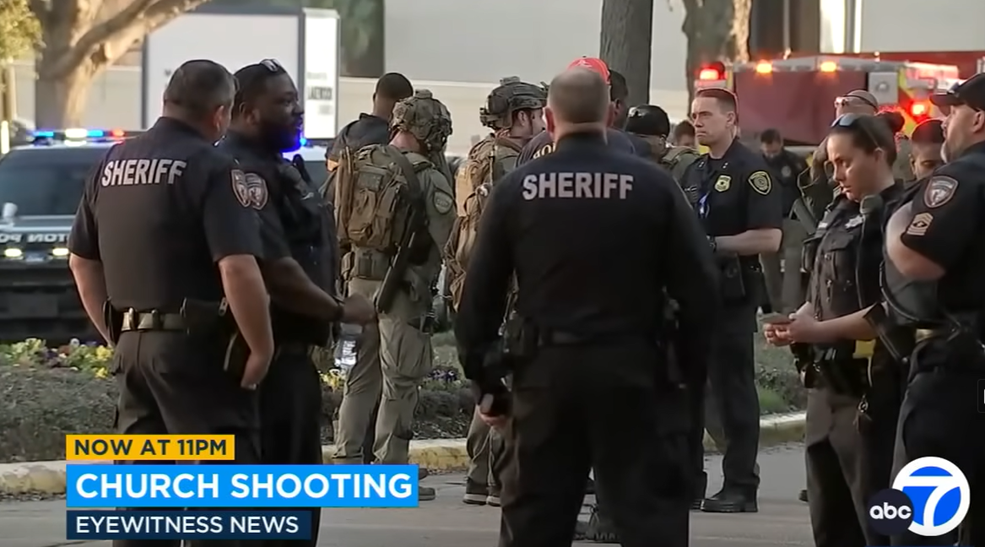
By L.A. Williams
Christian Action League
February 16, 2024
While investigators try to piece together what motivated a woman to open fire inside Joel Osteen’s Texas megachurch last Sunday, security experts say the tragic incident illustrates one key lesson: if we are prepared, we save lives.
“That should be the take-away,” says Kris Moloney, owner and course creator at Sheepdog Church Security Academy. “We have to be prepared to stop these things before they unfold.”
According to media reports, the 36-year-old shooter, known as Genesse Ivonne Moreno and also as Jeffrey Escalante, came into the church with a 7-year-old boy, pulled out an AR-style rifle and began shooting. Two off-duty officers responded, and Moreno was killed before ever reaching the sanctuary. The child remains in critical condition after getting caught in the crossfire. A 57-year-old man also suffered a minor wound.
“Our first priority is prayer for the child injured and for everyone connected to this incident,” says the Rev. Mark Creech, executive director of the Christian Action League. “And on the heels of that prayer should come increased protection for our churches through trained security teams.”
Creech said some North Carolina churches that were once unable to legally have armed security can now do so thanks in part to the work of the Christian Action League in support of the Religious Assembly Security and Protection Act of 2023. Before this legislation, if a private Christian school was located on the same campus as a church, concealed carry was prohibited, and these churches couldn’t develop security teams.
“These parishioners were as vulnerable as fish in a barrel to some depraved or disturbed soul,” Creech says. Although similar legislation had twice passed the Generally Assembly, it had been vetoed each time by Governor Roy Cooper. The third time it passed proved to be a charm as supermajorities of Republicans in both chambers were able to override Cooper’s veto. The bill, SB 41, allows weapons on the property shared by a church and a private school as long as it is outside of normal school hours.
Creech spoke in favor of the bill alongside more than a dozen pastors who held a news conference pleading for its passage. He pointed out that violence is on the rise not only at Christian churches but at temples, synagogues and other places of worship.
Moloney says church leaders, who for years were prone to ignore occasional criminal acts such as property damage or theft, are now seeing a growing number of more serious societal issues invading the sanctuary.
“What has changed is the frequency of issues like domestic violence spilling over into the church, disruption caused by mental illness, increased issues created by drugs and alcohol,” Moloney says. He cited aggravated assault as one of the growing problems, “people being attacked on church property.”
Both Creech and Moloney warn that pastors who think their churches are safe simply because a number of parishioners legally carry concealed weapons should think again.
“People in the pew with concealed carry are not necessarily actively watching what’s happening and prepared to respond to an incident,” Creech says.
Moloney says churches must consider all scenarios, not just an active shooter situation.
“If we are only planning for a violent intruder, we are missing so much in terms of the safety of our congregation,” he says. “Not everyone is a killer, in fact most are not. It’s much more likely to be something like a custody dispute where someone tries to take a child, a domestic violence incident or something that can be handled with de-escalation techniques. During my 18 years in law enforcement, I used verbal de-escalation every day, hands-on once or twice a week, and deadly force never.”
“More than just armed, church security teams need to be trained,” Moloney adds.
He suggests that churches that don’t have trained security teams start by choosing one program to implement, for example, a plan for fire evacuation for the children’s ministry or tightening check-in/check-out procedures for Sunday school. Another step might be forming a plan for medical emergencies and having volunteers trained in first-aid and CPR.

As the church works through each plan, members gain expertise and will be ready when it comes time to work through the more complex process of implementing armed guards, Moloney says. That’s when the church will need to seek out an insurance policy with a rider to cover armed security team members and develop highly detailed policies and procedures, including vetting and training practices.
While potential armed team members will need to qualify on the firing range and training for CPR must be done in person, Moloney says much of the security team training can be done online and at the participant’s own pace.
“With online training, churches can welcome people to the team, give them the sign-in info, tell them to get the training done and bring back the certification letter and then go from there,” he explains.
For more information on creating and training church security teams, contact Kris Moloney at kris@sheepdogchurchsecurity.net or visit the Sheepdog Church Security Academy online at https://sheepdog-church-security.thinkific.com/.
